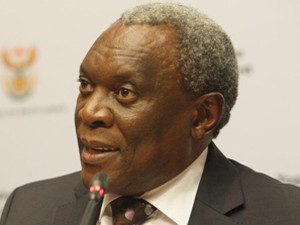
The Department of Telecommunications and Postal Services (DTPS) has been taken to task in a Parliamentary portfolio committee meeting because of overspending, a lack of internal controls and apparent failure to adhere to regulations.
The department, created when the Department of Communications (DOC) was unexpectedly split into two by president Jacob Zuma in May, recently presented to the Parliamentary portfolio committee on telecommunications and postal services. It listed the former DOC's achievements because the meeting covered the financial year up to March.
Senior officials highlighted several achievements, but noted it faced challenges, such as delays in the digital migration programme and a failure to implement the leadership development programme as planned, largely due to human resource capacity constraints. However, committee chairperson Tryphosa Kubayi took it to task for several issues.
Under fire
DG Rosey Sekese told the committee the auditor-general had raised issues around the payment of suppliers, human resource management, IT, supply chain management, and expenditure management. She noted corrective action was being taken as an invoice receipt register was being developed, and critical vacancies were being advertised and had dropped from 34% to 11.2%.
Despite Sekese's claims, Kubayi cited issues with the department's failure to comply with regulations, and criticised it around its "selective presentation" of facts in its annual report, pointing out state-owned entities had not met their targets.
In addition, Kubayi noted there was a recurring issue with a lack of internal controls; delays in filing posts, which was meant to happen in 12 months; and not enough was being done to support small and medium enterprises.
Spending issues
Sam Vilakazi, deputy DG, explained, while R1.7 billion in unspent funds had been surrendered to National Treasury, some R4.7 million was overspent on its ICT international affairs and trade programme because of exchange rate fluctuations. In addition, he said the subscription of R10.8 million to the International Telecommunication Union was "spiralling out of control".
Sekese explained compliance reviews had been conducted on all transactions to make sure policies and procedures were being complied with, and spending was monitored monthly. Despite this, the department faced funding previous commitments and ad hoc projects that were not budgeted for, among other issues, she said.
Kubayi said the department's explanation around unauthorised spending because of exchange rate changes was implausible, and it should rather have focused on increasing service delivery than returning funds to treasury. She questioned whether the R44 million spent on consultants could be justified.
Sekese, in reply, said internal controls were everyone's duty, and noted the department was working on leadership development. Chief director Themba Phiri added if staff had been negligent, and caused overspending, the department would seek to recoup these funds, although this process sometimes cost more than it was worth.
Kubayi remarked some people being paid to conduct their duties were failing to do so.
Share